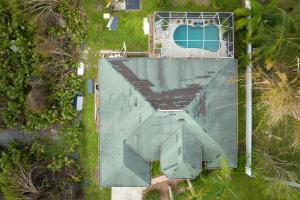ADDvantage Insurance Highlights Steps to Take When Homeowners Discover Storm Damage Isn’t Covered
Policyholders often believe they’re protected against storm damage until a claim is denied”
HOUMA, LA, UNITED STATES, August 27, 2025 /EINPresswire.com/ -- As storm season intensifies across South Louisiana, homeowners are beginning to take a closer look at their insurance coverage—often discovering too late that certain types of storm-related damage may not be included in standard home policies. ADDvantage Insurance, based in Houma, Louisiana, is offering clarity on what steps to take when storm damage occurs but is not covered under existing homeowner policies.— Eric Yeates
Owner Eric Yeates noted that while many assume storm coverage is automatic, the reality is that exclusions and limitations are common. Wind, hail, and flooding are not always covered under a single homeowner’s policy, particularly in coastal or high-risk zones.
“Policyholders often believe they’re protected against storm damage until a claim is denied,” said Yeates. “Knowing what to do next can make a significant difference in recovery time and financial impact.”
The first step after discovering uncovered storm damage is to document everything. Clear photos and videos of the damage, along with timestamps, provide valuable evidence for claims under any applicable policy and may support appeals or supplemental assistance programs. Detailed records of prior maintenance and inspection reports also help distinguish storm damage from pre-existing conditions.
Next, homeowners are advised to review their policy in full, including exclusions and endorsements. Many policies have fine print that excludes specific storm-related events such as surface water flooding, wind-driven rain, or damages resulting from roof age or prior disrepair. Understanding what is and is not covered under the current policy will help determine whether additional claims or appeals should be pursued.
If damage is caused by an excluded event, policyholders can explore options through supplemental or separate policies. In Louisiana, flood insurance is handled through separate policies offered by the National Flood Insurance Program (NFIP) or private insurers. Wind and named storm coverage may also be purchased separately or through endorsements in areas prone to tropical weather.
Yeates emphasized the importance of identifying whether any applicable deductible applies specifically to hurricane or named storm events. These deductibles are often higher than standard ones and are triggered under different thresholds depending on the policy. Filing a claim without understanding this difference can lead to unexpected out-of-pocket costs.
If the current policy does not include coverage for the specific type of storm damage sustained, the homeowner may still have options. Local or federal emergency relief programs occasionally provide assistance for disaster-related damages not covered by insurance. In these cases, documentation, denial letters, and evidence of ineligibility may be required to qualify.
In the event of a denial or partial denial, policyholders have the right to dispute the decision. This may include requesting a second inspection, hiring an independent adjuster, or submitting a formal appeal. A review of the denial should be completed carefully to determine whether misinterpretation of policy language or errors in damage assessment occurred.
Contractors and restoration professionals can assist with detailed damage reports and repair estimates, which support the appeal process. Engaging licensed professionals with storm damage experience is critical to providing credible documentation that may influence an insurer’s decision.
While navigating the aftermath of uncovered storm damage can be challenging, the experience often highlights the importance of regular policy reviews. Adding flood coverage, reviewing windstorm endorsements, and updating home valuations based on current rebuilding costs can prevent future coverage gaps.
Yeates encourages policyholders to schedule annual reviews before the start of hurricane season. This allows time to update coverage, assess risks, and consider changes based on property upgrades or changes in local weather patterns. Policies that were adequate five years ago may not reflect current conditions or construction costs.
Additionally, homeowners in South Louisiana should confirm whether policies are written on an actual cash value (ACV) or replacement cost value (RCV) basis. ACV policies pay out based on depreciated value, while RCV policies reimburse the full cost to replace damaged property. This distinction plays a significant role when filing claims for roofing, siding, and structural repairs after a major storm.
ADDvantage Insurance continues to assist policyholders throughout the Houma region and surrounding parishes in understanding coverage, identifying risk exposures, and responding to unexpected claim denials. The agency encourages residents to stay informed and proactive, especially in a region where weather-related losses can occur quickly and without warning.
Morgan Thomas
Rhino Digital, LLC
+1 504-875-5036
email us here
Visit us on social media:
Facebook
Legal Disclaimer:
EIN Presswire provides this news content "as is" without warranty of any kind. We do not accept any responsibility or liability for the accuracy, content, images, videos, licenses, completeness, legality, or reliability of the information contained in this article. If you have any complaints or copyright issues related to this article, kindly contact the author above.


